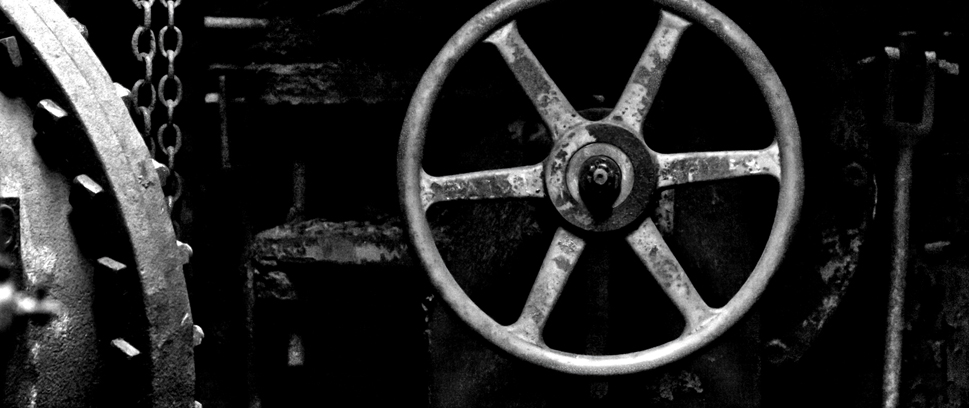
Limited Inventory and Staggered Saves

This column is a reprint from Unwinnable Monthly #157. If you like what you see, grab the magazine for less than ten dollars, or subscribe and get all future magazines for half price.
———
We are what we’re afraid of.
———
The scene, within the game, is this: You’re being pursued by a monster. You’re almost out of ammunition for all of your weapons and you have no more healing items. If you face off against this monster, you will surely die. You turn the corner, and run into a room. The door closes behind you. You know that the monster cannot enter. On the table is a way for you to save your progress. Not saving now would mean that if you die, you’d be set back a significant period of time. However, if you save now, you’re stuck with the limited resources you have, maybe trapping yourself into an unwinnable situation in the near future. This situation could be corrected if you returned to an earlier save and used your resources differently. So, do you save the game?
This scenario is a cornerstone of the classic survival horror game experience, popularized by the titan franchises Resident Evil and Silent Hill. Being able only to save at specific points and struggling with scarcity of resources, as well as limited inventory space, are very traditional ways of heightening the tension for the gaming session. Should you pick that item up, thus losing inventory space? Should you use your ammunition now, or save it for a more dire situation? And above all, when is an advantageous time to save your progress?
Making wise decisions about resource management and progress saving will make or break a survival horror play experience, as those of us who’ve tried to white-knuckle our way through an area in a Silent Hill game know. And although many of these mechanics were present in these games because of technological limitations, the things that they taught us about the appropriate moment for a particular action fascinate me, and I assume many of my fellow survival horror buffs still treat resources and manual saving as strategically as I do, even when the situation is not so dire.
What Resident Evil and the like taught us relates closely to a concept that goes all the way back to Ancient Greece: the idea of Kairos. Kairos is one of the ancient Greek words for time, but it doesn’t just mean “the point at which something occurs.” Kairos specifically means “the correct, appropriate and wise time to do something.” So, to act with Kairos means to act at the opportune moment, when something will have the maximum intended effect. Rhetoricians like me think about Kairos all the time, because the timing of your message impacts how people will receive it – asking for a raise when your boss is having a bad day is probably not going to go well for you.
So, the tension of classic horror games like Resident Evil or Silent Hill relies largely on the player not having a firm grasp of the Kairos of the game. Is it a good idea to use this item now, or will you regret it in ten minutes when it turns out you need it more? Should you save now and hope you’ll find more resources soon, or decline to save and hope you aren’t set back by failure? The ambiguity of the ideal moment for action keeps the player on the edge of their seat, because not acting kairotically has dire consequences, up to and including in-game death. This is directly contrasted with how tension is built in many horror films, where the audience is deeply aware of the appropriate moment for action (don’t go into the basement right now, for example), but has to watch characters on-screen act without Kairos.
While it’s important to note that much of the Kairos of these experiences comes from technological limitations and not intentionality on the part of the developers (so the game itself is being rhetorical without the human authors, which is a whole other can of worms), these mechanics have become so entrenched as facts of survival horror that even some contemporary horror games use them, instead of the now almost-ubiquitous autosave function. So you’re going to see Kairos crop up a lot over this column, because my hunch is that this idea, of knowing (or not) the opportune moment for action, and then being able to execute that action, is pretty key to an understanding of why we think things are scary. Dying in horror media is often the product of being in the wrong place and the wrong time, and death itself is largely scary because it means we will no longer have the time or opportunities of life. And since dying is a large part, like it or not, of playing any video game, I imagine Kairos will play a significant role as we continue to unravel the survival horror genre.
———
Emma Kostopolus loves all things that go bump in the night. When not playing scary games, you can find her in the kitchen, scientifically perfecting the recipe for fudge brownies. She has an Instagram where she logs the food and art she makes, along with her many cats.




